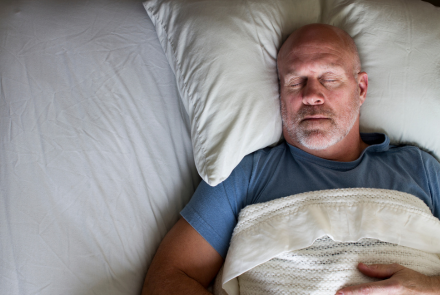
If left untreated, various symptoms can affect overall health and well-being.
Obstructive Sleep Apnea (OSA) is a medical condition in which the muscles in the throat excessively relax during sleep, leading to a partial or complete blockage of the upper airway. Such a blockage can result in pauses in breathing, low oxygen levels, exhaustion due to poor sleep quality, and various other health issues.
Patients most at risk for OSA include those who are:
• Obese
• 40 years and older
• Men (especially with larger necks)
• Individuals with a family history of sleep apnea
• Those with larger tonsils or smaller jaws
• People with cardiovascular conditions, hypertension, or diabetes
• Individuals who smoke, heavily drink alcohol, or are predominantly sedentary
• Postmenopausal women
• Pregnant women in the later stages of pregnancy
The most prominent signs and symptoms of OSA include loud snoring (not everyone who snores has sleep apnea), excessive daytime sleepiness caused by interrupted sleep patterns, insomnia, high blood pressure, and choking, gasping, or gurgling during sleep.
Patients experiencing these symptoms should be examined by a pulmonologist or sleep medicine specialist, who will assess the patient’s medical history and symptoms. “It is important for patients to be seen by a specialist who can determine the risk of sleep apnea for a patient and conduct proper physical and diagnostic exams,” says Murali G. Krishna, MD, FCCP, Director of Pulmonary Medicine at Montefiore Nyack Hospital and a board-certified pulmonary and critical care physician with Highland Medical, Pulmonary Medicine Associates.
A physical examination is necessary to inspect the mouth, throat, and nasal passages for signs of obstruction such as enlarged tonsils, a deviated septum, or other anatomical abnormalities that could limit airflow. Patients may be asked to keep a journal of their sleep habits and answer questionnaires to ascertain whether diagnostic testing is necessary. If testing is required, patients could undergo a polysomnography or sleep study, in which they would stay overnight at a hospital sleep center to be monitored during sleep. Another option is a home sleep apnea test (HSAT).
“Sleep disruptions can negatively affect your daily functioning and well-being, which is why it is so important to see a specialist for a proper diagnosis and treatment plan,” says Dr. Krishna. “Not only can OSA impair your daily functioning, but it also impacts long-term health.”
Recurrent episodes of low oxygen levels and disrupted sleep can increase the risks of serious medical conditions such as cardiovascular disease, type 2 diabetes, cognitive decline, and increased mortality or premature death.
When left untreated, OSA can worsen over time. The good news is that treatment options for OSA have been proven to improve or reverse the condition. For instance, weight loss can significantly reduce the severity of OSA and may even resolve the condition for some patients. Other options include:
• Continuous Positive Airway Pressure (CPAP), which is the most widely used and effective treatment for moderate to severe OSA. A CPAP machine is utilized during sleep to help keep the patient’s airway open, reducing the frequency of apneas and improving sleep quality.
• Lifestyle changes:
◦ Avoiding alcohol
◦ Quitting smoking
◦ Enhancing sleep hygiene
◦ Sleeping on one’s side
• Oral Appliances, also known as mandibular advancement devices, can reposition the jaw and tongue to keep the airway open during sleep.
• Surgical Treatment: Severe cases of sleep apnea may require surgery to remove excess tissue from the throat or correct anatomical abnormalities such as a deviated septum or enlarged tonsils. A newer surgical option is the Inspire device, an implantable nerve stimulator that treats OSA by signaling the hypoglossal nerve to pull the tongue forward, keeping the airway open during sleep. This treatment is used for patients who cannot use a CPAP machine or when CPAP is ineffective in alleviating OSA.
To schedule a consultation with one of our pulmonologists/sleep specialists, please call Highland Medical Pulmonary Medicine Associates in Nyack at 845-897-8371 or Palisades Primary Care and Pulmonary Medicine in West Nyack at 845-203-1212. For more information, visit: Pulmonology | Highland Medical PC.



 Upcoming Events
Upcoming Events



